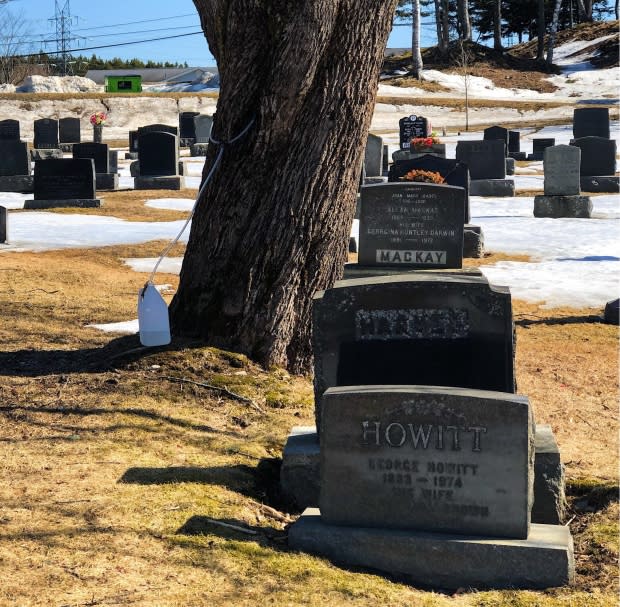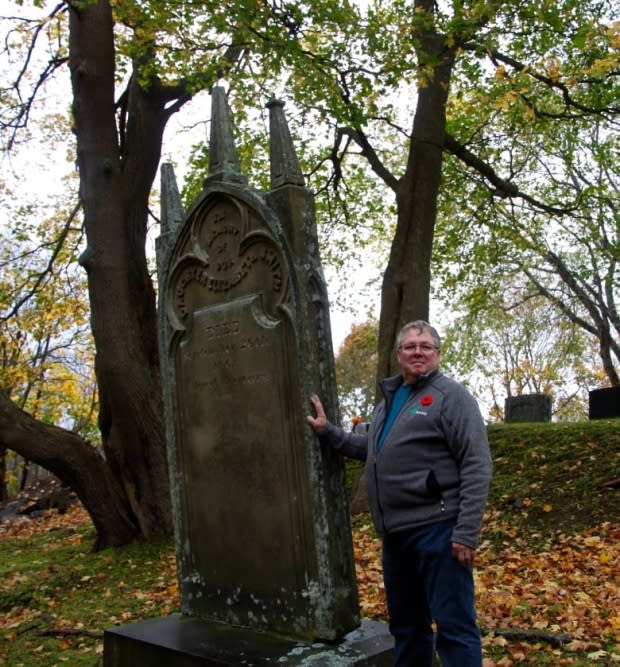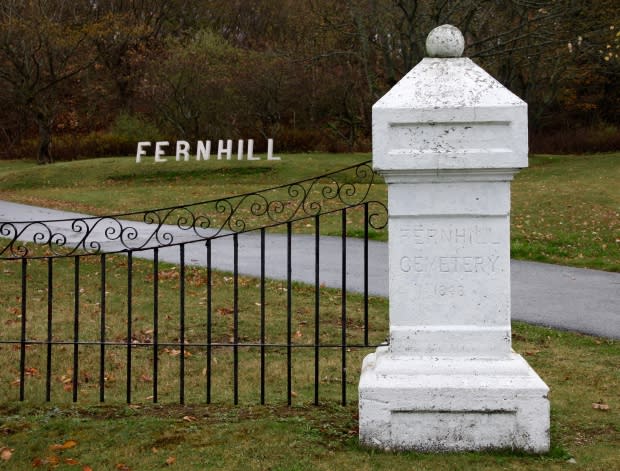The strange case of Saint John's cemetery syrup
Don Creamer's maple syrup is to die for.
For the past four springs, the east Saint Johner has set up gallon jugs and plastic tubing to tap the trees at Fernhill Cemetery.
The memento mori maple syrup operation sometimes gets curious glances from the joggers, dog-walkers, and occasional ghost hunters who use Fernhill as a public park.
"There are some people who think it's a little bit weird, but that's OK," Creamer said.
Founded in 1848, Fernhill is the largest cemetery on Canada's East Coast.
Its 200-acre grounds are home to winding paths, fountains, a bandstand, and the graves of about 43,000 Saint Johners.

A maple syrup operation in a graveyard isn't something you see every day.
Creamer acknowledged he's been approached "once or twice" by people who find the whole idea a little macabre.
He's fine with that.
"I enjoy it, and I know what I'm doing," he said.
Tapping into tradition
The eight trees Creamer taps in Fernhill are "hundreds of years old," said cemetery general manager Doug Forbes.
"They go back probably before the existence of the cemetery," which turns 171 years old this year.
They generate about eight gallons of sap per day, which boils down to about 24 small bottles of syrup in the run of a season.

Creamer doesn't make any money off the operation.
"It's mostly for family and friends," he said.
Forbes said the only concern for the cemetery's board of directors was damage to the trees.

Once that was satisfied, he said, the directors were happy to grant Creamer permission for the unusual venture.
"We're continuing on the traditions from the old days," Forbes said.
"We're trying to keep the place as much of a park and walking grounds as it is a respectful burial ground."
OK. How does it taste?
Cemetery soil can contain compounds that could have grave consequences if consumed.
In addition to the proximity of human remains, many early coffins were lined with, or made from lead, and early embalming fluids contained arsenic.
That's enough to give even the most avid syrup fan the heebie-jeebies.
But there's zero risk of impurities in the soil being absorbed into the tree's root system, according to Forbes, who has personally sampled the syrup.
"Most of the root systems are fairly shallow on these trees," he said.

Creamer agrees that there's "no need for concern."
"I boil it all day long, so if there's any impurities, they get boiled off, and it's heavily filtered before it goes into the final bottle," he said.
It's "nice to utilize the natural resources that are here," Forbes said.
As for the taste?
"It's sweet. It's excellent," he said.
"There's no problem at all with it. It's a nice, dark brown syrup, which they say is the good stuff."

